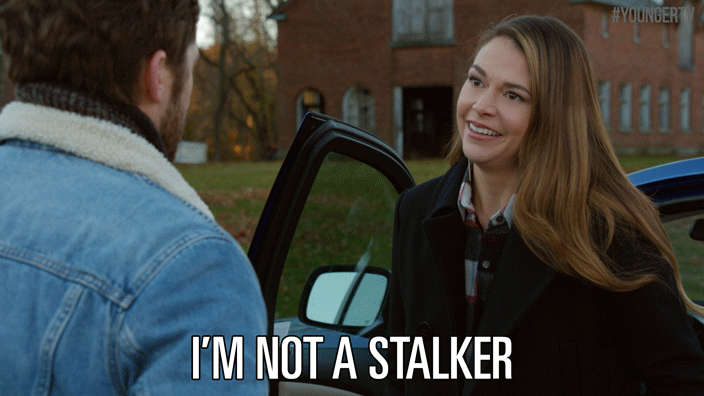We all know how syllabus week goes. You listen to the professor go through his or her syllabus point-by-point. You sit silently judging the rest of the students in the lecture, scope the hall for hotties or new study buddies (or both *wink wink*) and blow up your bestie group chat asking how you’re all going to get sylly that night. But first, take these precautions before or during the first week of classes to ensure your syllabus week stays easy and breezy.
1. Read the syllabus before class starts

You should listen to your professor talk through his or her syllabus on the first day of class because he or she might mention things or elaborate on what’s written down. But you know your professor emailed it out to you days ago. “Students should have at least read the syllabus before class on the first day…knowing the syllabus from the word ‘go’ is necessary. One can only ask good questions about the syllabus after having gone through it,” University of Iowa TA David Tuwei said. Once you know what the syllabus says before class and after the first day, you should never run into that passive-aggressive one-liner email from your professor:
“It’s on the syllabus
Sent from iPhone.”
2. Own the syllabus

A sheet of paper or a screen listing dates and rules will do no good on it’s own. Do whatever you can to translate each syllabus into a language you understand. If you’re a planner person, copy all the dates from each syllabus into your planner. If you’re a laptop person, type the dates into your desktop calendar. Color code dates and important policies with different highlighters. Make sticky notes with the times and locations of all office hours. Three-hole-punch every syllabus and carry them in a binder. Whatever it takes to make the most out of those syllabi, do it. Otherwise, you’ll forget about due dates and policies after week one. “The syllabus is a pact between professor and student,” Iowa TA Subin Paul said. Hold up your end of the deal by making the syllabus your own.
3. Be familiar with required readings

You don’t need to know the exact font of subheadings and the author’s birthday, but at least know the structure of the book. If it’s a textbook, know if you have supplemental materials online. If it’s a novel or another non-textbook reading, check out SparkNotes or CliffNotes to see if the book is a hard read. You don’t want to wake up thinking you can knock out the readings before class to find your textbook has 20-page chapters and size four font. At the very least, buy the textbook before class starts. “I cannot stand the student who comes to me one week into class and says he or she just ordered their book on Amazon and says it will be there in ten days. Heavy sigh…” Judson University Professor Michelle Kilbourne said.
4. Research Your Professor

You learn so much from Rate My Professors, it almost feels like stalking a potential date online. In the age of social media, you wouldn’t go into a date blind, would you? What if he still posts angsty song lyrics as his Facebook statuses? What if she captions her Instagrams with #nofilter and she clearly used Mayfair? Unfortunately, you won’t be able to find these things out about your professor, but you can find all of the information that’s really important (difficulty of grading, how much homework is assigned on average, helpfulness outside of class) and information you didn’t think you needed to know (hotness, annoying lip smacking habits, weird obsessions with outer space).
5. Get to office hours early

Go to office hours right after your first class with a professor or TA, or even before your first class. Most professors and TAs post their office hours online or on the syllabus, which you should’ve read before class (see tip one). “Students are welcome to office hours at any time. It is a good idea to stop by during the first couple weeks to introduce yourself to your professor,” University of Illinois Professor Jenna Weglarz-Ward said. “Don’t wait too long into the semester to use office hours.” Showing your face to the people who hold your GPA in their hands is a relatively easy way to make sure they don’t crush it.
6. Form a personal relationship with professors

Think of you and your fellow classmates like stray puppies professors find outside their offices in the rain. Once you’ve gone to their office hours (see previous tip), and they know your name, they’ll get attached. This doesn’t mean sucking up or brown nosing, but showing you care about the class. “If a student has met with me throughout the semester and demonstrated a desire to succeed and evidence of working toward that goal, I’m rooting for them to do well,” Iowa Professor Brian Ekdale said. Forming a personal relationship with your professor early, gives you leverage when it comes time to eke out a couple more points for your final grade. Note: These points don’t come from being a teacher’s pet.
7. Have everything but the kitchen sink with you on the first day

Bring your textbook. Bring a notebook. Bring three colors of pens and highlighters. Bring your laptop. You never know what your professor or TA will ask of you, and looking like you’ve prepared for everything will make you that much more impressive. “As hokey as it sounds, [a student just needs] a clean sheet of paper and an open mind. I reserve my expectations for my students until later in the semester,” Iowa Professor Erick Brucker said. Plus, it’s always good to have both electronics and paper products, because some old-fashioned professors believe laptops are just distractions.
8. Do the first homework assignment

This is a lot to expect, I know. But chances are, the first homework assignment will be something easy like a paper telling the professor about your summer, some review exercises, a reading or a syllabus quiz. Just think of how much will be off your plate if you just get the easy things done now. At the very least, do the first reading and have something to say about it other than, “The writer was boring but the pictures were cool, I guess.” “[I am impressed] when [students] point out details in the reading that interest them, and are able to connect them to examples on their own. This means they are extending the concepts in the reading into the real world,” said Iowa professor David Dowling. You learned to read at the age of six; I’m sure you can dust off the ol’ readers one more time for old time’s sake, especially if it means keeping the Sacred Syllabus Week sylly.



















